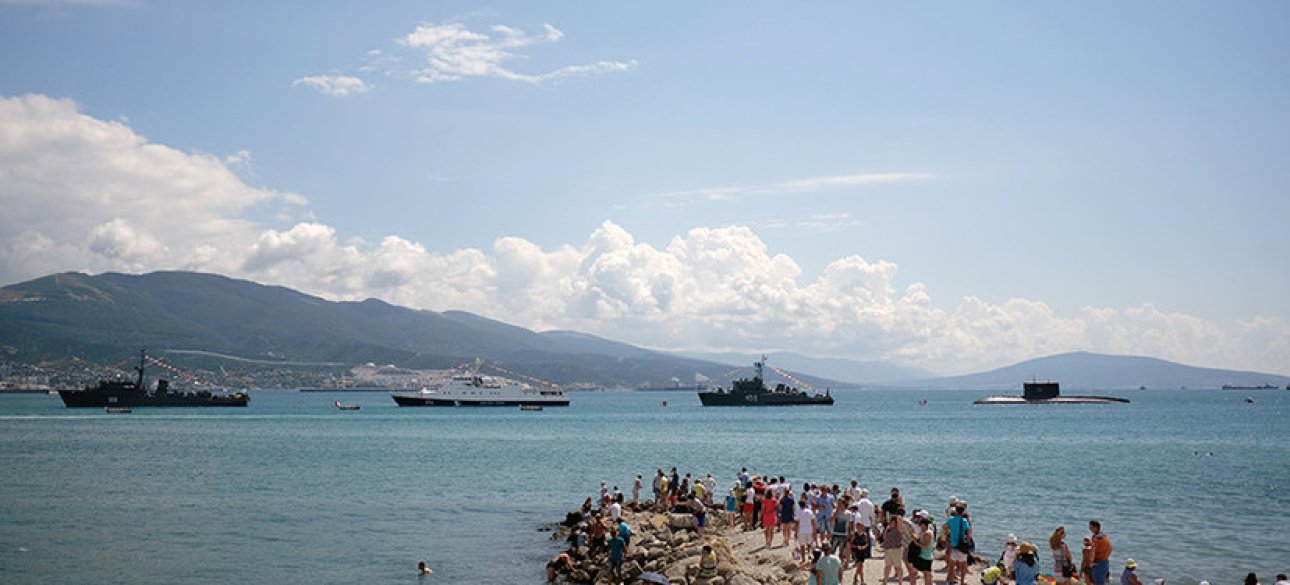
 By Natali Moss
By Natali Moss
Although there is a bunch of problems, the national economy has survived and now it is the turn of the Russians to keep a blow in the Black Sea. The markets stirred two events: the picking up of the Russian warship "Olenegorsky Hrynyak" in the port of Novorossiysk and the "accident" on the SIG tanker, which transported fuel for occupation troops in Crimea. Both events have noticed not only in the grain and oil market, but also insurers in the market for maritime transportation.
Novorossiysk port, which was considered safe, is no longer. Any ship in Russian waters is at danger, which automatically increased the likelihood of accidents, destruction and other events that are included in the classic list of insurance risks during maritime transportation. This state of affairs automatically leads to the health of insurance protection during the transportation of oil, grain and other raw materials. Of course, the cost of insurance lies with shippers and recipients of goods.
There are no resources to ensure maritime transport insurance in Russia. Russian insurance companies do not have enough capital to accept great risks. At the beginning of the war in Ukraine, insurers set tariffs up to 5% of the insurance amount, which in the standards of our region is simply a cosmic size. However, after the insured event was implemented in practice, and more than once, the tariffs of carriers for the Russians have grown.
The demand for freight increased by about 40%in August, and prices-by $ 10-15 thousand per day of freight compared to the ports of Bulgaria or Romania. Therefore, the number of people who want to transport goods for the Russians will fall. There are no resources to ensure maritime transport insurance in Russia. Russian insurance companies do not have enough capital to accept high risks, and Lloyds and other Western Club services are not available to them.
What the Russians have done to soften the situation are the majority of such great risks to the Russian National reinsure Company (RNPC), which belongs to their central bank. That is, in the implementation of insured events with Russian courts, where insurance was provided by a small company, and reinsurance still went to the RNPC, all losses will be satisfied at the expense of the central bank and the budget. Imitation of reinsured activities by RNPC can no longer be alert.
The Federal Budget of the Russian Federation is now and so with an unscheduled scarcity, and it is not rubber, and in the case of mass insurance cases, questions about who will compensate the losses in the countries of the Black Sea region. Especially under the risks of "poor quality insurance" are the old tankers, which form the basis of the shadow fleet of the Russian Federation, and which are in the area of emergency risks, even without the participation of Ukrainian marine drones.
Any ship in Russian waters is at danger, which automatically increased the likelihood of accidents, destruction and other events that are included in the classic list of insurance risks during maritime transportation. Two or three environmental catastrophes off the coast of Bulgaria, Turkey or Romania, even without the Armed Forces, will half the traffic from Russian ports, and carriers with Russian policies will cease to be released to most ports.
The responsibility of the carrier when transporting oil can cost more than the cost of an old tanker. Therefore, the strategy of "to buy old tankers, to hang all the risks of a budget RNPC, and thus to circumvent sanctions" can only work temporarily. The same problem of covering big risks without access to Western companies Lloyds, Genre, Munich Re, Hannover Re, Ace Limited and other Russians will not be able.










All rights reserved IN-Ukraine.info - 2022